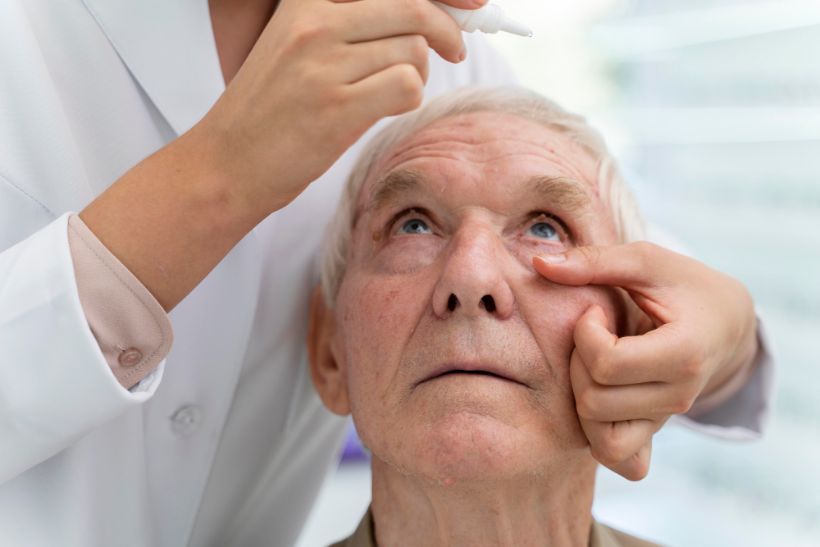Attention Deficit Hyperactivity Disorder (ADHD) affects approximately 4.4% of adults in the United States, according to the National Institute of Mental Health (NIMH). For seniors on fixed incomes and uninsured Americans, managing ADHD symptoms can present significant financial challenges. Prescription medications often come with high costs, leading many to ask: Can you buy ADHD medication over the counter? And specifically, are over-the-counter ADHD medication options available in Canada?
This comprehensive guide explores what ADHD is, whether over-the-counter options exist in Canada, how effective non-prescription alternatives might be, and what important information you should know before considering these options.
What is ADHD?
Attention Deficit Hyperactivity Disorder (ADHD) is a neurodevelopmental disorder characterized by persistent patterns of inattention, hyperactivity, and impulsivity that interfere with functioning or development. According to the Centers for Disease Control and Prevention (CDC), approximately 6.1 million children (9.4%) in the United States have been diagnosed with ADHD, with symptoms often persisting into adulthood.
ADHD presents in three primary types:
- Predominantly Inattentive Presentation: Difficulty maintaining attention, following instructions, and completing tasks
- Predominantly Hyperactive-Impulsive Presentation: Excessive movement, fidgeting, interrupting, and difficulty waiting
- Combined Presentation: Symptoms of both inattention and hyperactivity-impulsivity
A 2021 study published in the Journal of Attention Disorders found that ADHD diagnoses among adults aged 65+ increased by 123% between 2007 and 2017, highlighting the growing relevance of this condition for seniors.
Can I Get ADHD Medication Over the Counter from Canada?
No, you cannot buy prescription ADHD medications over the counter in Canada.
Traditional ADHD medications like methylphenidate (Ritalin) and amphetamine-based products (Adderall) are classified as controlled substances in Canada, just as they are in the United States. These medications require a doctor’s prescription in both countries.
According to Health Canada, stimulant medications used to treat ADHD fall under the Controlled Drugs and Substances Act, making them unavailable without a prescription. This applies regardless of whether you’re a Canadian citizen, a visitor, or attempting to order these medications online.
Despite common misconceptions, there is no legal pathway to purchase prescription ADHD medications over the counter in Canada. The National Association of Pharmacy Regulatory Authorities (NAPRA) in Canada maintains strict controls on these medications.
Over-the-Counter Options for ADHD in Canada
While prescription stimulants aren’t available over the counter, Canada does have some non-prescription supplements and remedies that some people use to help manage ADHD symptoms:
- Omega-3 Fatty Acid Supplements: Available in most Canadian pharmacies and health food stores. A meta-analysis published in the Journal of Clinical Psychiatry found modest benefits of omega-3 supplementation for ADHD symptoms, with an effect size of 0.26 (small but statistically significant).
- Melatonin: Often used to address sleep issues that commonly accompany ADHD. The NIH reports that up to 70% of children with ADHD experience sleep problems, which can exacerbate attention difficulties.
- L-Theanine: An amino acid found in tea that may promote relaxation without sedation. Available in supplement form in Canadian health stores.
- Zinc and Magnesium Supplements: Some research suggests deficiencies in these minerals may contribute to ADHD symptoms. A study from the National Institutes of Health found that 52% of children with ADHD had lower serum zinc levels compared to controls.
It’s important to note that these are not FDA-approved treatments specifically for ADHD, though they are legally available over the counter.
Do OTC Medications Work for the Treatment of ADHD?
The evidence for over-the-counter options is notably less robust than for prescription medications. According to a comprehensive review published by the Agency for Healthcare Research and Quality (AHRQ), prescription stimulants demonstrate an effect size of 0.7-0.8 (moderate to large) in improving ADHD symptoms, while most over-the-counter options typically show effect sizes below 0.3 (small).
The National Institutes of Health (NIH) reports:
- Omega-3 supplements show modest benefits in some studies, but the effects are significantly smaller than prescription medications. A 2018 systematic review in Neuropsychiatric Disease and Treatment found evidence suggesting benefit but called for larger, more rigorous studies.
- Herbal supplements like ginkgo biloba have mixed evidence. A 2010 study published in PubMed Central showed some improvement in ADHD symptoms, but the American Academy of Pediatrics does not recommend herbal supplements for ADHD treatment due to limited evidence.
- Zinc and iron supplements may help individuals who have deficiencies in these nutrients, but they don’t address the underlying neurological aspects of ADHD. According to research published in the Journal of Child and Adolescent Psychopharmacology, supplementation only showed benefits in children with confirmed deficiencies.
The CDC emphasizes that behavioral therapy remains the recommended first-line treatment for ADHD in children under 6, and a combination of behavioral therapy and medication is typically most effective for older children and adults.
What is the Most Important Information About OTC ADHD Medication?
Before considering over-the-counter options for ADHD symptom management, it’s crucial to understand:
- Consult healthcare providers first: The FDA and CDC recommend consulting with healthcare providers before starting any supplementation regimen for ADHD. This is especially important for seniors who may have other health conditions or take medications that could interact with supplements.
- Limited regulation: Unlike prescription medications, supplements aren’t rigorously tested for efficacy by regulatory bodies. According to the NIH Office of Dietary Supplements, manufacturers don’t need to prove their products are effective before marketing them.
- Potential for drug interactions: Many supplements can interact with prescription medications. A 2018 study in JAMA Internal Medicine found that 23% of supplement users didn’t disclose this usage to their healthcare providers, creating potential safety risks.
- Quality varies widely: The FDA does not verify the quality of supplements before they reach the market. A 2017 study by Consumer Lab found that nearly 25% of supplements tested failed quality testing for various reasons, including contamination and mislabeling.
- Not a replacement for proven treatments: The American Academy of Pediatrics and the American Psychiatric Association emphasize that non-prescription approaches should not replace evidence-based treatments like behavioral therapy and prescription medications when indicated.
Four Non-Prescription Remedies for ADHD
Beyond supplements, several non-pharmacological approaches show promise for managing ADHD symptoms:
- Regular Physical Exercise Research from the CDC shows that 30-40 minutes of moderate to vigorous exercise can temporarily improve attention and reduce hyperactivity and impulsivity in people with ADHD. A 2019 meta-analysis in the Journal of Attention Disorders found that regular exercise produced medium to large effects on attention, hyperactivity, and impulsivity symptoms, with an average effect size of 0.58.
- Structured Sleep Hygiene The National Sleep Foundation reports that 25-50% of people with ADHD have sleep problems, and improving sleep can reduce symptom severity. Research published in the Journal of Sleep Research found that sleep interventions improved ADHD symptoms by approximately 35% in children and adolescents with both sleep and ADHD issues.
- Mindfulness and Meditation. A 2018 study published in the Journal of Attention Disorders found that an 8-week mindfulness program reduced ADHD symptoms by 30-40% in adult participants. The NIH has funded several studies examining mindfulness for ADHD management, finding promising preliminary results.
- Nutritional Approaches While evidence for elimination diets is mixed, some individuals report improvements when avoiding certain food additives and allergens. A systematic review published in the Journal of the American Academy of Child & Adolescent Psychiatry found that artificial food coloring elimination resulted in a small but significant improvement in ADHD symptoms in about 8% of children with ADHD.
Conclusion
While you cannot legally purchase prescription ADHD medications over the counter in Canada, there are alternative approaches that may help manage symptoms. These include certain supplements available without a prescription, alongside non-pharmacological strategies like exercise, sleep hygiene, mindfulness, and dietary modifications.
For seniors on fixed incomes and uninsured Americans, these approaches may offer some relief when prescription options are financially out of reach. However, it’s essential to:
- Consult with healthcare providers before starting any new supplement or treatment approach
- Understand that non-prescription options typically offer more modest benefits than prescription medications
- Consider combining approaches for more comprehensive symptom management
ADHD management is highly individualized, and what works for one person may not work for another. The most effective approach often involves working with healthcare providers to develop a comprehensive treatment plan that may include both medical and non-medical interventions.
References
- ADHD Data and Statistics. CDC.gov. 2023.
- Attention-Deficit/Hyperactivity Disorder. NIMH.nih.gov. 2021.
- Comparative Efficacy and Tolerability of Medications for ADHD. PubMed.gov. 2018.
- Dietary Supplements for ADHD. NIH.gov. 2022.
- Exercise as a Treatment for ADHD: A Systematic Review. PubMed.gov. 2019.
- Mindfulness Meditation Training for ADHD in Adulthood. PubMed.gov. 2018.
- Omega-3 Fatty Acids for ADHD: A Systematic Review. PubMed.gov. 2019.
- Prevalence of ADHD Among Adults Aged 65 and Older. PubMed.gov. 2021.
- Sleep and ADHD: A Complex Relationship. PubMed.gov. 2020.
- Zinc Deficiency and ADHD: A Systematic Review. PubMed.gov. 2015.







